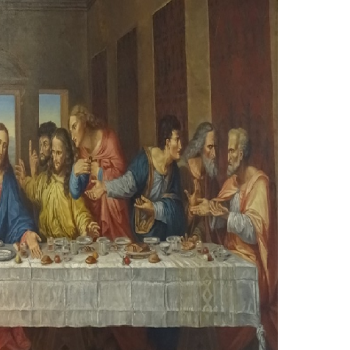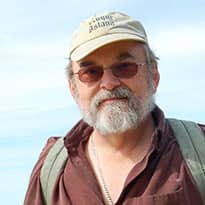Editors' Note: This article is part of a Public Square conversation on Civil Religion. Read other perspectives here.
America is unique in being founded on a set of ideas rather than tribal identity. Encapsulated in the Declaration of Independence, those ideas were strong enough to help give unity to a nation of immigrants and override the worst of tribalism and ethnic nationalism. This movement toward unity was rooted in the North, and it provided a framework within which the major events of American history could find meaning. When combined with certain Christian ideas, it also led to ideas of "manifest destiny" and "American exceptionalism." But this supposed unity was not universal.
American civil religion died early in the antebellum South. After the Founders passed away, Southern leaders found their revived enthusiasm for slavery could not be harmonized with our founding principles. An alternative counter-culture arose that shared the millennial view of American exceptionalism and expansion, but turned its back on the liberal ideals expressed within the Declaration of Independence. Fundamentalist versions of Christianity and the explicitly religious civil religion of the Confederacy took its place.
After the Civil War, this alternative culture comprised a junior partner in American society, one rendered relatively powerless until recently (for various historical reasons). But in the 1970s and '80s, the NeoConfederate South was brought into the Republican Party as key to its "Southern Strategy." Once closely allied with traditional American conservatism, the greater passion and unity of the Southern counterculture enabled it to dominate that party.
Why did this occur? Because Northern conservatism honored its version of American history, not the Confederacy's.
I think this happened because American civil religion had been in a long decline, its liberal Christian and deist moral underpinnings eroded by the growth of modernity and the rise of mass industrial society. Today, American civil religion's ethical core is very weak, and has been largely replaced by pride in political and military power. The acceptance of torture by so many Americans is an illustration of this degeneration, and that it finds its highest level of support among evangelical churchgoers a sign of the influence of Southern religion. The language of rights has been replaced by the language of economics, the values of citizenship by the image of the satisfied consumer. One can consume in isolation, but one cannot be a citizen alone.
Any conception of government by consent of the governed has been abandoned abroad in favor of endless war and intervention. Citizens are now considered "natural resources" for those who would rule us rather than considering the government as the servant of the people. Sociopathic institutions like corporations are treated as human beings, and privileged ones at that, while voting is made increasingly difficult for genuine citizens.
Against this decayed tradition, the South has produced a near-fanatical authoritarian Christianity at ease with war and contemptuous of democratic traditions of equality, the rule of law, and traditional conservative values of respect for tradition. They have explicitly allied themselves with corporate power. While not a majority, a ruthless dedication to winning at all costs makes up for their lack of numbers. Only now is this reality beginning to be grasped by many Americans.
Terms of revival
I do not see a revival of American civil religion until new moral and spiritual underpinnings support it. I think these underpinnings exist, and one of the most perceptive early observers of our country intuited what they are, though he did not approve. Alexis de Tocqueville wrote that Pantheism was a natural outgrowth of Democracy. I think he was correct.
Spiritual traditions in harmony with a Pantheistic sensibility are in greater accord with the new society America's principles helped bring into being than are the spiritual traditions of our Founders' time. Those traditions have atrophied, undermined by the society they helped to create.
Hope rests with a new spiritual sensibility that is not necessarily a new religion, but rather can shape the way in which many spiritual traditions are practiced. This sensibility emphasizes divine immanence and the importance of the Sacred Feminine as well as the Masculine. It is within this context that the best of America's civil religion can be renewed and given life again.





